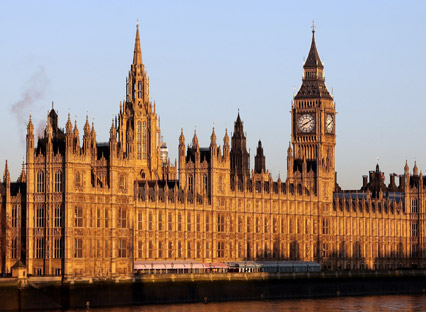For and against fixed-term parliaments
Should we remove the right of prime ministers to dissolve parliament and call an election?

A free daily email with the biggest news stories of the day – and the best features from TheWeek.com
You are now subscribed
Your newsletter sign-up was successful
The Conservative-Liberal Democrat coalition government is considering electoral reform, which may include fixed-term parliaments.
Arguments for• Whispers in the media over whether a prime minister plans to call an election this autumn represents a diversion from the real business of government.
• Leaving the choice of the timing to the Prime Minister - with the proviso that there has to be an election within five years of the last one - gives the party in power an unjustifiable advantage. It enables the government of the day to manipulate events and to seize on any temporary blip in its favour in the polls.
The Week
Escape your echo chamber. Get the facts behind the news, plus analysis from multiple perspectives.

Sign up for The Week's Free Newsletters
From our morning news briefing to a weekly Good News Newsletter, get the best of The Week delivered directly to your inbox.
From our morning news briefing to a weekly Good News Newsletter, get the best of The Week delivered directly to your inbox.
• Fixed-term parliaments would help to redress the balance between the Commons and the Executive, at present biased in favour of the latter.
• Westminster considered fixed-term parliaments to be good enough for the devolved parts of the UK. If it's right for the Scottish parliament and the Welsh and Northern Irish assemblies, it is surely right for Westminster itself.
• Elections for the European parliament and for local authorities here are also held on fixed appointed dates. The Prime Minister's freedom to use the Royal prerogative at a time of his choosing is an anomaly.
Arguments against• If it ain't broke, don't fix it. Our present flexible system has worked well for centuries.
A free daily email with the biggest news stories of the day – and the best features from TheWeek.com
• Where you have fixed-term parliaments, everything grinds to a halt in the year leading up to the election date as governments tailor their policies accordingly.
• The flexibility of the present system allows for a dissolution and new election if the Government has an inadequate majority. The value of this has been shown in 1951, 1964 and the second election in 1974.
• The Royal Prerogative to dissolve parliament on the advice of the Prime Minister is an essential element in the British constitution.
• There is no evidence that fixed-term elections in, for example, the USA make for better government.
-
 Rock Villa, Bequia: a hidden villa on an island epitomising Caribbean bliss
Rock Villa, Bequia: a hidden villa on an island epitomising Caribbean blissThe Week Recommends This gorgeous property is the perfect setting to do absolutely nothing – and that’s the best part
-
 Mexico’s vape ban has led to a cartel-controlled black market
Mexico’s vape ban has led to a cartel-controlled black marketUnder the Radar Cartels have expanded their power over the sale of illicit tobacco
-
 Nepal’s fake mountain rescue fraud
Nepal’s fake mountain rescue fraudUnder The Radar Arrests made in alleged $20 million insurance racket
-
 The high street: Britain’s next political battleground?
The high street: Britain’s next political battleground?In the Spotlight Mass closure of shops and influx of organised crime are fuelling voter anger, and offer an opening for Reform UK
-
 Is a Reform-Tory pact becoming more likely?
Is a Reform-Tory pact becoming more likely?Today’s Big Question Nigel Farage’s party is ahead in the polls but still falls well short of a Commons majority, while Conservatives are still losing MPs to Reform
-
 Taking the low road: why the SNP is still standing strong
Taking the low road: why the SNP is still standing strongTalking Point Party is on track for a fifth consecutive victory in May’s Holyrood election, despite controversies and plummeting support
-
 What difference will the 'historic' UK-Germany treaty make?
What difference will the 'historic' UK-Germany treaty make?Today's Big Question Europe's two biggest economies sign first treaty since WWII, underscoring 'triangle alliance' with France amid growing Russian threat and US distance
-
 Is the G7 still relevant?
Is the G7 still relevant?Talking Point Donald Trump's early departure cast a shadow over this week's meeting of the world's major democracies
-
 Angela Rayner: Labour's next leader?
Angela Rayner: Labour's next leader?Today's Big Question A leaked memo has sparked speculation that the deputy PM is positioning herself as the left-of-centre alternative to Keir Starmer
-
 Is Starmer's plan to send migrants overseas Rwanda 2.0?
Is Starmer's plan to send migrants overseas Rwanda 2.0?Today's Big Question Failed asylum seekers could be removed to Balkan nations under new government plans
-
 Has Starmer put Britain back on the world stage?
Has Starmer put Britain back on the world stage?Talking Point UK takes leading role in Europe on Ukraine and Starmer praised as credible 'bridge' with the US under Trump